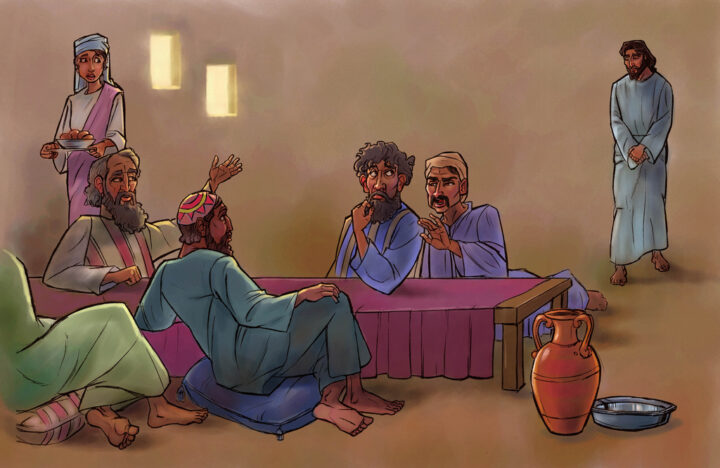Daily Lesson for Wednesday 14th of August 2024
Read Mark 9:30-41. What is different about Jesus’ second prediction of His death and resurrection (compare with Mark 8:31)? Also, what do the disciples argue about, and what instruction does Jesus give?
In the first prediction, Jesus refers to those who will reject Him and kill Him. In the second prediction, Jesus refers to the fact that He will be betrayed. The betrayer is not pointed out at this time, but the reader already knows who it is because of the identification of Judas (see Mark 3:19).
Again, the Lord refers to being killed and then rising after three days. But the disciples seem even less interested in the details of this prediction than in the first. Unwelcome news does not garner discussion.
In Mark 8:27, Jesus was north of the Sea of Galilee near Caesarea Philippi. In Mark 9:30, He is passing through Galilee, and in Mark 9:33, He enters Capernaum. Thus, it is not difficult to envisage His journey from north to south. However, He enters Capernaum alone as the twelve disciples lag behind. In the house, He inquires about their discussion on the way. No one speaks up, a sure sign of their discomfort at the question, almost like children caught doing something they know is wrong. Their conversation had been about who was the greatest. As little as most people are willing to admit it, this question of who is greatest is something everyone thinks about. But in the kingdom of God, this idea gets turned upside down.
Jesus responds to the problem in two steps. First, He utters the clear statement that to be first (greatest), you have to become a servant. Then Jesus illustrates His meaning by an action. Evidently a child was standing nearby listening. Jesus takes the child and places him in the midst of the group. That would be intimidating for the child. But then Jesus takes the child in His arms, relaxing the scene. He teaches that if you receive the child, you receive Him. And if you receive Him, you receive His Father. Thus, the lowest child is linked to God Himself.
John asks a question about outsiders, and Jesus teaches the important lesson that those not against us are for us. The Lord affirms that helping those in Christian service, even in small ways, does not go unnoticed in heaven.
|
What is the biblical idea of greatness in contrast to the world’s idea? Which one are you striving for? |
 (0)
(0)



